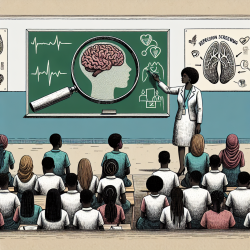As practitioners dedicated to the well-being of children, it is crucial to continually refine our approaches based on the latest research. The study titled "Success or Failure? Are We Meeting the Needs of Children With Developmental Coordination Disorder?" offers valuable insights into how we can better support children with Developmental Coordination Disorder (DCD). Here, we will explore the findings and provide actionable steps to improve outcomes for these children.
Key Findings from the Research
The research, conducted through an online cross-sectional survey, revealed several critical points:
- Only 20% of children with suspected or confirmed DCD received therapy at school.
- Parents expressed frustration with the lack of awareness and understanding of DCD among educators and healthcare professionals.
- Access to therapy did not significantly differ based on income, age, or geographical location.
Implementing Evidence-Based Practices
Based on these findings, here are some strategies to enhance the support provided to children with DCD:
1. Increase Awareness and Training
Educators and healthcare professionals need more training to understand the impacts of DCD. Implementing professional development programs can help bridge this gap.
2. Advocate for School-Based Services
Given the low percentage of children receiving school-based therapy, advocating for more accessible and funded services within schools is essential. Collaboration with school administrators and policymakers can facilitate this change.
3. Utilize a Multi-Disciplinary Approach
Children with DCD benefit from a comprehensive approach that includes occupational therapy, physical therapy, and psychological support. Creating a coordinated care plan involving multiple disciplines can address the various needs of these children.
4. Encourage Further Research
Practitioners should stay informed about the latest research and contribute to ongoing studies. By participating in research, we can continue to refine our approaches and ensure they are evidence-based.
Conclusion
By implementing these strategies, practitioners can significantly improve the outcomes for children with DCD. Collaboration, advocacy, and ongoing education are key to ensuring these children receive the support they need to thrive.
To read the original research paper, please follow this link: Success or Failure? Are We Meeting the Needs of Children With Developmental Coordination Disorder?










